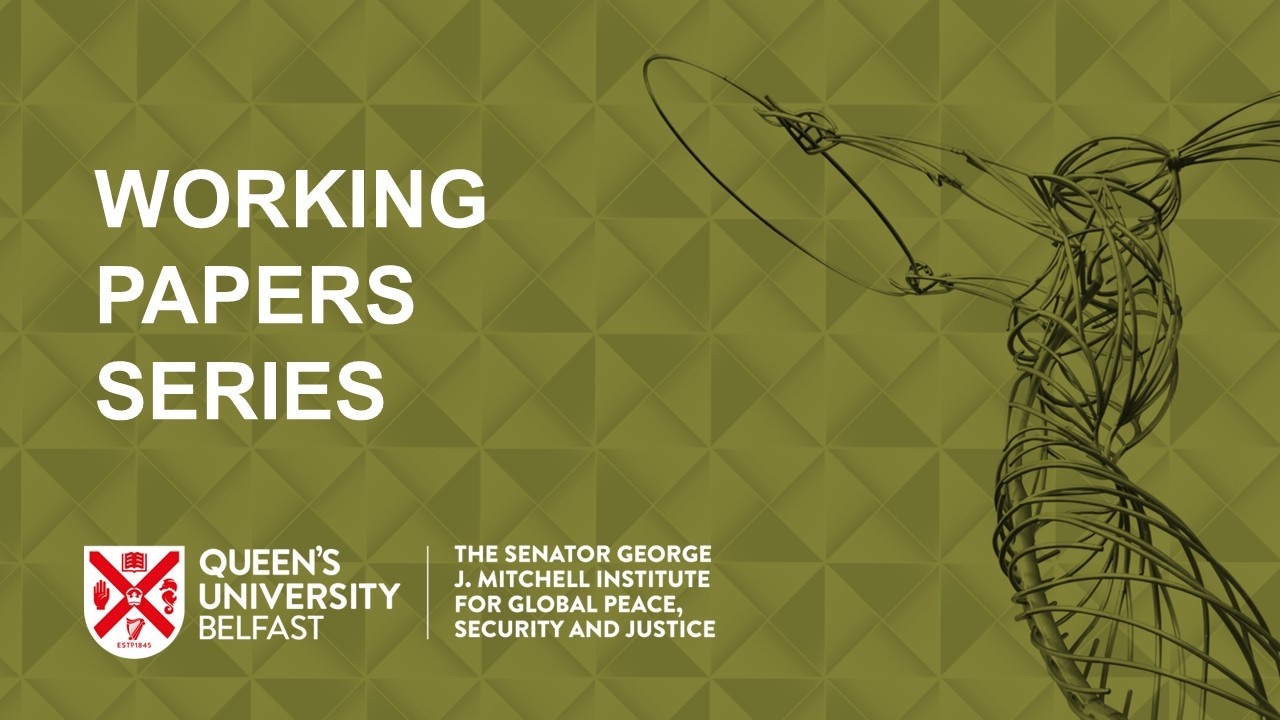Goethe – Europe’s Rumi
Ambassador Akbar Ahmed

It is difficult to overstate the importance of Goethe for Germany, and for Europe as a whole. The most eminent thinkers, political figures, artists, and composers of the continent engaged with and were profoundly influenced by Goethe. Friedrich Nietzsche, for example, argued that Goethe is probably the closest a human being can come to the idea of the Übermensch or Superman, that person who realizes and fulfills their human potential. Ludwig van Beethoven, Franz Schubert, and Franz Liszt all set Goethe’s works to music. And yet, in other parts of the world including in the United States, Goethe is not very well known.
In their latest Working Paper in the series, Mitchell Institute International Advisory Board Member Ambassador Akbar Ahmed and co-authors Frankie Martin and Dr Amineh Hoti discuss Goethe’s ideas concerning human coexistence and reaching out to the “Other.” Today, amid increasingly dire assessments of the global situation and the rise of far-right movements promoting hostile and assaultive views of the 'Other,' Goethe’s example is essential - not just for Europe and the West, but for the world at large."
For the authors, Goethe is a great “Mingler,” a person who has reached out to the “Other” in the interests of facilitating human coexistence and dialogue. In his work and life, Goethe stressed a larger human unity and universal humanism. He opened the German and European heart and mind to embrace the world’s cultures and religions, especially those from the East. Of particular note is his embrace of Islamic ideas and philosophies which ranged across his life and which he sought to introduce to Europe in the cause of love and friendship. At the age of 23, he wrote his poem “Mahomet’s Song” in honor of the Prophet of Islam, while at the age of 70 he said he was considering “devoutly celebrating that holy night in which the Quran in its entirety was revealed to the prophet from on high.” Important aspects of his thinking display Islamic, and especially Sufi concepts such as wahdat al-wujud or the Unity of Being. This was all despite the deep and longstanding ethnic and religious opposition to Islam in Europe. The authors explore Goethe’s life, his philosophy on a Divine Unity, reason and religion, his interaction and interest in Islam and some of his works. At a time when there is such conflict, hatred, and misunderstanding in the world, the authors argue that the example of Goethe can inspire us.
Read the paper here
Media
